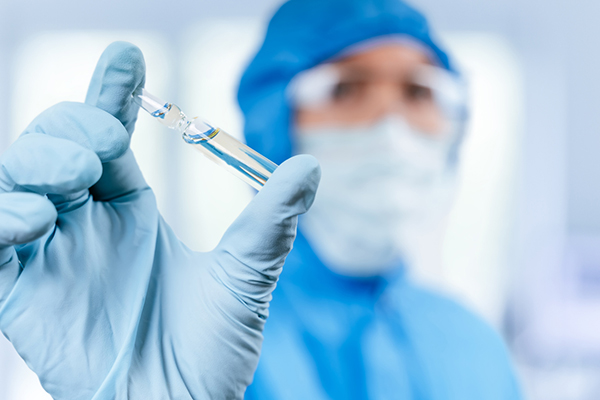How biotech firms are at the forefront in helping control a potential coronavirus pandemic
Carl Harald Janson of the International Biotechnology Trust explains the role biotech firms are playing…
10th March 2020 10:10
Carl Harald Janson of the International Biotechnology Trust explains the role biotech firms are playing in containing Covid-19.

As fears mount about the human, social and economic impact of Covid-19 and markets tumble, investors should take comfort from biotechnology companies’ improved ability to develop a cure for this disease.
Traditional measures, such as containing and quarantining patients, are the first line of defence to reduce the impact of a potential pandemic. Then, biotechnology companies can make use of their improved abilities to develop therapies and vaccines to treat and prevent this virus.
These developments should bolster the fortunes of biotechnology firms, which could make the sector attractive to investors when the outlook for many other companies looks poor in the face of the associated economic downturn.
Tackling coronavirus
The initial responsibility for tackling a pandemic lies with government officials. Those at risk of infection are contained and contact is minimised by, for example, cancelling events and closing schools. Biotechnology firms can then look to find a drug to treat those with the disease. The final step is to develop a vaccine to prevent the disease.
As soon as a new virus emerges, biotech firms can now rapidly sequence its RNA. Technological developments have made it much cheaper and more efficient to ascertain the genetic code of the Covid-19 than when Sars emerged in 2002.
Covid-19’s genome was sequenced within a month of the first case being diagnosed, whereas it took around six months for this to happen for Sars after the outbreak 18 years ago.
Once sequenced, the genetic code has been shared with a wide range of researchers. Distributing this data with lab workers around the world increases the likelihood of finding a cure and the original source.
Increased understanding
Biotech companies are not only able to sequence the genome of a virus more rapidly now – understanding of virology has also improved. This increase in knowledge makes it much easier for scientists to determine the history of a virus from its genetic code.
For example, researchers were able to determine that 85% of Covid-19 was similar to a virus that affects bats. This makes it easier to narrow the number of compounds to screen for efficacy as lab workers will know which drugs are effective against the original virus.
The US biotechnology giant Gilead – which is one of International Biotechnology Trust’s largest holdings – has great expertise in the treatment of viruses. This firm developed a treatment that cures hepatitis C and has a number of drugs that are used to make HIV a chronic, rather than acute, condition.
Gilead is developing a drug called remdesivir. This drug is now one of the most promising candidates for treating the current Covid-19 infection. This compound is not approved and not on the market.
As remdesivir was already in an advanced development stage, it can be tested in patients who have Covid-19. Clinical trials are now under way, but it will take a few months before it is known whether this compound could be an effective treatment.
If the results of the trials are positive, both the biotech industry and regulatory authorities will work fast to make the drug available.
Creating a vaccine
Discovering a vaccine is only the first step in the process. Equally challenging is manufacturing the compound in large enough quantities and to a high enough standard.
The complexities arise because making biological rather than simple chemical compounds is difficult and prone to variation. Clinical vaccine trials usually take longer than testing for the effectiveness of a drug.
Technological developments have, however, helped to speed up this process. While producing biological compounds remains tricky, it has been possible to increase the yield of a vaccine.
The technical complexity of producing a vaccine and the long clinical trials means it is likely to take years rather than months to develop and get approval. For the time being, treatment rather than vaccination will be the second line of defence. In the meantime, the virus may subside naturally, as was seen with Sars, and this would make a vaccine unnecessary.
Investment case
Biotech companies are at the forefront of helping to control a potential pandemic, such as Covid-19. Their technologies will make it faster to develop both a cure for the disease and a vaccine to contain the virus.
While other industrial sectors, such as retail, tourism and airlines, may see their revenues and profits tumble as economic growth falters, biotech firms may become more defensive investments.
Carl Harald Janson is investment manager at the International Biotechnology Trust.
This article was originally published in our sister magazine Money Observer, which ceased publication in August 2020.
These articles are provided for information purposes only. Occasionally, an opinion about whether to buy or sell a specific investment may be provided by third parties. The content is not intended to be a personal recommendation to buy or sell any financial instrument or product, or to adopt any investment strategy as it is not provided based on an assessment of your investing knowledge and experience, your financial situation or your investment objectives. The value of your investments, and the income derived from them, may go down as well as up. You may not get back all the money that you invest. The investments referred to in this article may not be suitable for all investors, and if in doubt, an investor should seek advice from a qualified investment adviser.
Full performance can be found on the company or index summary page on the interactive investor website. Simply click on the company's or index name highlighted in the article.